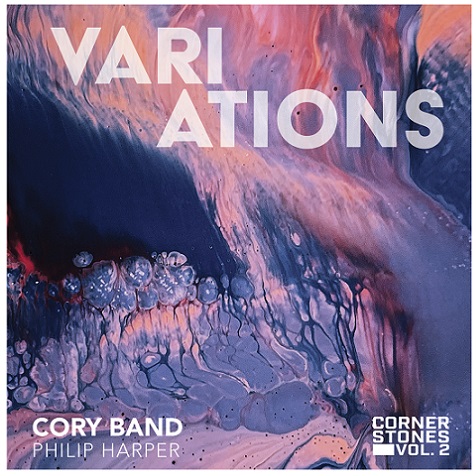

The second volume of Cory’s ambitious ‘Cornerstones’ series draws inspiration from the art of variation form and function.
Philip Harper’s choices to illustrate his exploration are intriguing; each different in source, outlook and structure – from the tonal majesty of Ralph Vaughan Williams to the creative wit of Gilbert Vinter.
The welcome detours to the Salvation Army repertoire of Wilfred Heaton and Dean Goffin are balanced by a rare opportunity to consider the serious homographic intentions of George Lloyd and the curiosity of Eric Ball’s tribute to the early 1960s’s British high street.
Bare grain
The MDs interpretations also make for engaging consideration; bold, colourful and occasionally idiosyncratic, scraping away the layers of years of patchy overpainting to apply a fresh lick of both undercoat and gloss to the bare grain of the scores.
The MDs interpretations also make for engaging consideration; bold, colourful and occasionally idiosyncratic, scraping away the layers of years of patchy overpainting to apply a fresh lick of both undercoat and gloss to the bare grain of the scores.
Lloyd’s ‘Diversions on a Bass Theme’ is an unexpected twist of variant creativity – and not just its title. The opening ‘bass’ motif (the work was commissioned by the Bass Brewers) provides the fragmentary foundation on which the whole work is based - the ‘tunes’ as the composer himself calls them, growing into an insistent, symphonic whole, the intensity captured with certainty from the first bar.
New bridge
‘Celestial Prospect’ is also symphonic in approach – yet almost diametrically opposite in structure. Written in the 1940s, it disappeared after being played by the Rosehill Band of the Salvation Army, only to be rediscovered in the 1980s by Derek Smith of the New York Staff Band.
Based on the Salvationist song ‘Come Comrades Dear’, Heaton was persuaded to provide a new bridge between the original elegy and finale, resulting in a work that loses none of its precise inventiveness or heartfelt intentions, the MD drawing a warm delicacy and tempered robustness to permeate the playing.
Heaton was persuaded to provide a new bridge between the original elegy and finale, resulting in a work that loses none of its precise inventiveness or heartfelt intentions, the MD drawing a warm delicacy and tempered robustness to permeate the playing.
Vibrancy
No new realisations with the Vaughan Williams 'Variations for Brass Band', which is presented in its original 1957 form (with some subtle amendments and with celeste); its variant flow coloured with a rich, occasional punchy boldness that brings a modern day vibrancy to its majesty.
Eric Ball’s ‘Main Street’ remains a dated curiosity though – the trio of ‘variations’ snapshot postcard portraits of a ‘main street’ that exists only in the imagination (the 1961 British Open programme stated that the work had been written earlier in the year, before the title “suggested itself”).
It’s pleasant music, undemanding in scope, leaving you to wonder what Ball would have made of the modern townscape thoroughfare of nail bars, downbeat charity shops and neon lit fast food joints.
It’s pleasant music, undemanding in scope, leaving you to wonder what Ball would have made of the modern townscape thoroughfare of nail bars, downbeat charity shops and neon lit fast food joints.
In contrast, Philip Harper rounds things off with a modern-day revivalist take on ‘Variations on a Ninth’ – an interpretation that reveals its imaginative capriciousness in full.
Traditionalists may baulk a little at the approach – but the balance between no nonsense directness and occasional waspishness retains the essence of Gilbert Vinter’s genius for ingenuity.
Iwan Fox
To purchase:
CD: https://www.worldofbrass.com/102011
Download: https://www.worldofbrass.com/102011-download
Wobplay: http://www.wobplay.com
Play list:
1. Diversions on a Bass Theme (George Lloyd)
2. Variations – Celestial Prospect (Wilfred Heaton)
3. Variations for Brass Band (Ralph Vaughan Williams)
4. Main Street (Eric Ball)
5. Rhapsodic Variations – My Strength, My Tower (Dean Goffin)
6. Variations on a Ninth (Gilbert Vinter)









